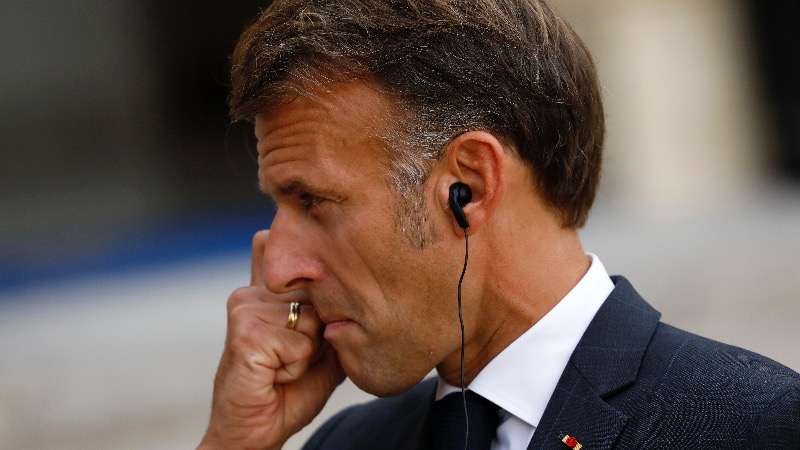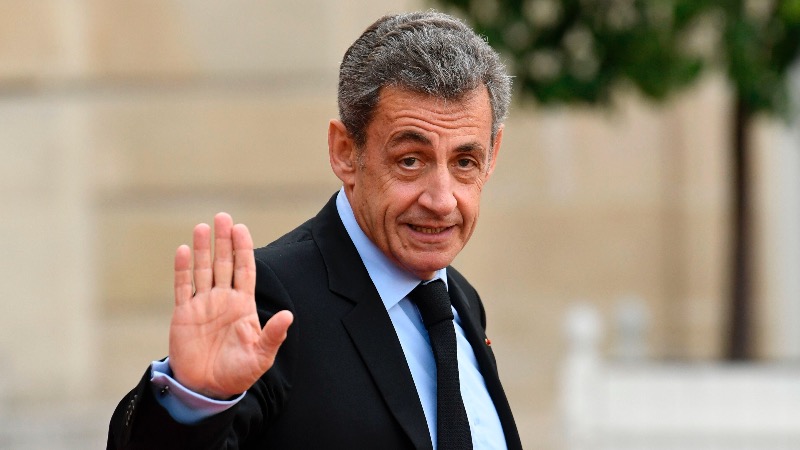 Image Credit: Antoine Gyori - Corbis / Contributor / Getty
Image Credit: Antoine Gyori - Corbis / Contributor / Getty Although the French have been accustomed to navigating troubled waters for many months now, the resignation of Prime Minister Sébastien Lecornu on the morning of October 6th, just hours after the appointment of his government, took everyone by surprise. Since this bombshell, political reactions have been multiplying in preparation for what comes next. Pressure is mounting on Emmanuel Macron, who is unanimously blamed for the current chaos—even by his closest allies.
France has now been without a government for a month, since François Bayrou was forced out by a vote of no confidence on Monday, September 8th. The appointment of Sébastien Lecornu as prime minister the very next day was nothing more than an illusion, as he struggled for several weeks to put together a team that was stillborn. Appointed on the evening of October 5th, it ceased to exist on the morning of the 6th by his own decision.
Lecornu’s choice is, at the very least, an honest and lucid one. He acknowledges the impasse in which France finds itself and does not intend to continue pretending otherwise. But there is one man who continues to live a lie: Emmanuel Macron. For a growing number of French people, the charade has gone on long enough.
The latest polls reveal that 70% of French people want the president of the republic to resign.
By stubbornly refusing to dissolve parliament after Bayrou’s defeat in early September, the president has allowed the situation to deteriorate further, with stagnation and a crisis of confidence. He may no longer be able to escape it, and the longer he waits, the more the opposition will rise up against him and be determined to bring him down.
Everything indicates that he cannot bring himself to do it, even though, apart from his resignation, it is the only real card he can play. Even in his own camp, there is no mistaking it. The former prime minister and now leader of the Macronist deputies, Gabriel Attal, was a guest on TF1’s television news programme on Monday. The man who not so long ago was presented as Macron’s ‘favourite’ or his natural heir did not mince his words when it came to the president. He explained that he “no longer understood the president’s decisions,” before adding: “There are decisions that give the impression of a kind of determination to hold on to power.” It couldn’t be clearer: Macron is clinging to power, and he is dragging the whole country into the abyss.
Édouard Philippe, also a former prime minister and also a candidate to succeed Macron in 2027, goes even further. Outpacing his colleague and rival, he explicitly states the need for Macron to step down—the first figure in the presidential camp to cross the Rubicon. “It seems to me that he would do himself credit by proposing the name of a prime minister whose role would be to carry out day-to-day business and draw up a budget. Once France has a budget, which is essential, he announces that he is organising an early presidential election, in other words, he announces that he is leaving,” said Philippe.
The convergence of these two voices resonates powerfully: Macron’s departure is now an option that even the president’s own supporters are no longer hesitant to consider–even if they have an obvious personal interest in doing so.
In the meantime, in an incomprehensible move, Macron has asked the outgoing prime minister to “continue negotiations” until Wednesday. What negotiations? To what end? Lecornu has been very clear: he will not return as head of government. So what is the point? The “negotiations” are about giving the impression that one still has a grip on reality.
The reason is simple: Macron is trying to buy time. He will not be able to escape dissolution and is postponing the deadline he fears. He promised that he would “take responsibility” on Wednesday, October 8th.
Marine Le Pen and Jordan Bardella refuse to participate in this demagogic staging. They are waiting for their moment: the dissolution, which will allow them—perhaps—to obtain a sufficient majority to govern.
So what are the options on the table today? For Macron, there are three. Appoint a new government, dissolve the National Assembly, or resign.
The option of appointing a new government has been exhausted. No one wants to go there because the equation is impossible to solve: there is no viable majority.
Dissolving the National Assembly would be a first step. Holding new elections would give the French people a chance to have their say again. But let’s not kid ourselves: even after these elections, there is no guarantee that a clear majority will emerge. The pernicious and deadly reflex of the Republican front, however weakened, could very well be dramatically reactivated, preventing the RN from reaching the majority threshold needed to form a government. New elections will seriously test the French right: will it be able to form its own alternative front in the face of this hostile barrier?
Resign? That is the only option that offers France a small chance of salvation by radically sweeping away the current political establishment. Has the time come?



